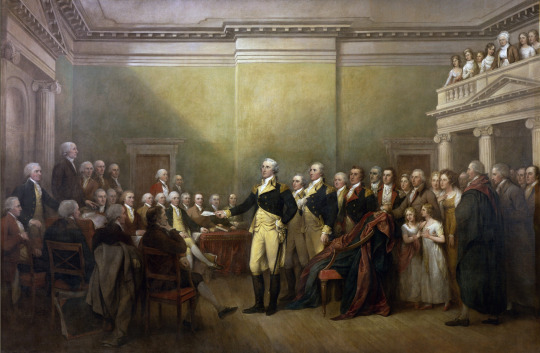#Letters From An American
Text

LETTERS FROM AN AMERICAN
July 6, 2023
HEATHER COX RICHARDSON
JUL 7, 2023
The payroll processing firm ADP said today that private sector jobs jumped by 497,000 in June, far higher than the Dow Jones consensus estimate predicted. The big gains were in leisure and hospitality, which added 232,000 new hires; construction with 97,000; and trade, transportation and utilities with 90,000. Annual pay rose at a rate of 6.4%. Most of the jobs came from companies with fewer than 50 employees.
The Dow Jones Industrial Average, which is a way to measure the stock market by aggregating certain stocks, dropped 372 points as the strong labor market made traders afraid that the Fed would raise interest rates again to cool the economy. Higher interest rates make borrowing more expensive, slowing investment.
Today, as the Washington Post’s climate reporter Scott Dance warned that the sudden surge of broken heat records around the globe is raising alarm among scientists, Bloomberg’s Cailley LaPara reported that the incentives in the Inflation Reduction Act for emerging technologies to address climate change have long-term as well as short-term benefits.
Dance noted that temperatures in the North Atlantic are already close to their typical annual peak although we are early in the season, sea ice levels around Antarctica are terribly low, and Monday was the Earth’s hottest day in at least 125,000 years and Tuesday was hotter. LaPara noted that while much attention has been paid to the short-term solar, EV, and wind industries in the U.S., emerging technologies for industries that can’t be electrified—technologies like sustainable aviation fuel, clean hydrogen, and direct air capture, which pulls carbon dioxide out of the air—offer huge potential to reduce emissions by 2030.
This news was the backdrop today as President Biden was in South Carolina to talk about Bidenomics. After touting the huge investments of both public and private capital that are bringing new businesses and repaired infrastructure to that state, Biden noted that analysts have said that the new laws Democrats have passed will do more for Republican-dominated states than for Democratic ones. “Well, that’s okay with me,” Biden said, “because we’re all Americans. Because my view is: Wherever the need is most, that’s the place we should be helping. And that’s what we’re doing. Because the way I look at it, the progress we’re making is good for all Americans, all of America.”
On Air Force One on the way to the event, deputy press secretary Andrew Bates began his remarks to the press: “President Biden promised that he would be a president for all Americans, regardless of where they live and regardless of whether they voted for him or not. He also promised to rebuild the middle class. The fact that Bidenomics has now galvanized over $500 billion in job-creating private sector investment is the newest testament to how seriously he takes fulfilling those promises.”
Bates listed all the economic accomplishments of the administration and then added: “the most powerful endorsement of Bidenomics is this: Every signature economic law this President has signed, congressional Republicans who voted “no” and attacked it on Fox News then went home to their district and hailed its benefits.” He noted that “Senator Lindsey Graham called the Inflation Reduction Act ‘a nightmare for South Carolina,’” then, “[j]ust two months later, he called BMW’s electric vehicles announcement ‘one of the most consequential announcements in the history of the state of South Carolina.’” “Representative Joe Wilson blasted the Bipartisan Infrastructure Law but later announced, ‘I welcome Scout Motors’ plans to invest $2 billion and create up to 4,000 jobs in South Carolina.’ Nancy Mace called Bidenomics legislation a…‘disaster,’ then welcomed a RAISE grant to Charleston.”
“[W]hat could speak to the effectiveness of Bidenomics more than these conversions?” Bates asked.
While Biden is trying to sell Americans on an economic vision for the future, the Republican leadership is doubling down on dislike of President Biden and the Democrats. Early on the morning of July 2, Trump, who remains the presumptive 2024 Republican presidential nominee, shared a meme of President Biden that included a flag reading: “F*CK BIDEN AND F*CK YOU FOR VOTING FOR HIM!” The next morning, in all caps, he railed against what he called “massive prosecutorial conduct” and “the weaponization of law enforcement,” asking: “Do the people of this once great nation even have a choice but to protest the potential doom of the United States of America??? 2024!!!”
Prosecutors have told U.S. district judge Aileen Cannon that they want to begin Trump’s trial on 37 federal charges for keeping and hiding classified national security documents, and as his legal trouble heats up, Trump appears to be calling for violence against Democrats. On June 29 he posted what he claimed was the address of former president Barack Obama, inspiring a man who had been at the January 6 attack on the U.S. Capitol to repost the address and to warn, “We got these losers surrounded! See you in hell,…Obama’s [sic].” Taylor Tarranto then headed there with firearms and ammunition, as well as a machete, in his van. Secret Service agents arrested him.
Indeed, those crossing the law for the former president are not faring well. More than 1,000 people have been arrested for their participation in the events of January 6, and those higher up the ladder are starting to feel the heat as well. Trump lawyer Lin Wood, who pushed Trump’s 2020 election lies, was permitted to “retire” his law license on Tuesday rather than be disbarred. Trump lawyer John Eastman is facing disbarment in California for trying to overturn the 2020 election with his “fake elector” scheme, a ploy whose legitimacy the Supreme Court rejected last week. And today, Trump aide Walt Nauta pleaded not guilty to federal charges of withholding documents and conspiring to obstruct justice for allegedly helping Trump hide the classified documents he had at Mar-a-Lago.
Trump Republicans—MAGA Republicans—are cementing their identity by fanning fears based on cultural issues, but it is becoming clear those are no longer as powerful as they used to be as the reality of Republican extremism becomes clear.
Yesterday the man who raped and impregnated a then-9-year-old Ohio girl was sentenced to at least 25 years in prison. Last year, after the Supreme Court overturned the 1973 Roe v. Wade decision recognizing the constitutional right to abortion, President Biden used her case to argue for the need for abortion access. Republican lawmakers, who had criminalized all abortions after 6 weeks, before most people know they’re pregnant, publicly doubted that the case was real (Ohio Attorney General Dave Yost told the Fox News Channel there was “not a damn scintilla of evidence” to support the story). Unable to receive an abortion in Ohio, the girl, who had since turned 10, had to travel to Indiana, where Dr. Caitlin Bernard performed the procedure.
Republican Indiana attorney general Todd Rokita complained—inaccurately—that Bernard had not reported child abuse and that she had violated privacy laws by talking to a reporter, although she did not identify the patient and her employer said she acted properly. Bernard was nonetheless reprimanded for her handling of privacy issues and fined by the Indiana licensing board. Her employer disagreed.
As Republican-dominated states have dramatically restricted abortion, they have fueled such a backlash that party members are either trying to avoid talking about it or are now replacing the phrase “national ban” with “national consensus” or “national standard,” although as feminist writer Jessica Valenti, who studies this language, notes, they still mean strict antiabortion measures. In the House, some newly-elected and swing-district Republicans have blocked abortion measures from coming to a vote out of concern they will lose their seats in 2024.
But it is not at all clear the issue will go away. Yesterday, those committed to protecting abortion rights in Ohio turned in 70% more signatures than they needed to get a measure amending the constitution to protect that access on the ballot this November. In August, though, antiabortion forces will use a special election to try to change the threshold for constitutional amendments, requiring 60% of voters rather than a majority.
LETTERS FROM AN AMERICAN
HEATHER COX RICHARDSON
#Bidenomics#Joe Biden#economy#jobs#middle class#justice#Letters From an American#Heather Cox Richardson#infrastructure#climate change
245 notes
·
View notes
Text
youtube
LETTERS FROM AN AMERICAN
January 12, 2024
HEATHER COX RICHARDSON
JAN 12, 2024
Last week, after President Joe Biden went to Valley Forge and then spoke in Pennsylvania, I got a chance to sit down with him to ask a few questions.
What I wanted to hear from him illustrates the difference between journalists and historians.
Journalists are trained to find breaking stories and to explain them clearly so that their audience is better informed about what is happening in the world. What they do is vitally important to a democracy, and it is hard work. One of the reasons I always try to call out the names of journalists whose articles I’m describing is to highlight that there are real people working hard to dig out the stories we all need to know and that we are all part of a community trying together to figure out what’s happening in this country.
Historians do something different than journalists. We study how and why societies change. We are trained to see larger patterns in the facts we find in documents, speeches, letters, and photographs…and in the work of journalists. Some historians believe that mass movements change society, and so they focus on such movements; others believe that great figures change society, and they focus on biographies. Still others focus on economic change. And so on.
In my case, I am fascinated by the way ideas change society, and I am especially interested in the gap between what people believe and what is actually happening in the real world. That interest means that I always want to know how people think and especially how their worldview informs the way they act. Then I compare that worldview to the real-world policies they are putting into place. I sometimes think of what I study as the place where the rubber of ideas meets the road of the real world.
I have twice now been able to interview President Biden. (And let me tell you, it is an odd experience to have your historical subject be able to talk back to you!) The opportunity to ask a historical figure how he thinks, after I have spent years studying his policies, is mind-blowing.
To that end, I wanted to know why he chose to go to Valley Forge, where General George Washington quartered his Continental Army troops for six months in the hard winter of 1777–1788, to start his 2024 presidential campaign. Valley Forge looms huge in American mythology, but most people probably can’t say why. So what did it mean to him to launch his 2024 presidential campaign from there?
I also was deeply interested in what he means when he says he has great faith in the American people—something he says all the time but usually without much context. So what exactly is it about the American people that gives him such faith?
The answers are important, I think, and I found at least one of them surprising.
As I say, it is an odd thing to have a historical subject who can talk back to you, but in all the right ways: it forces you to adjust your understanding of our historical moment. That’s the sort of information that will make the historical record clearer and that, when today’s society has itself become history, will help historians in the future better understand how and why it changed.
LETTERS FROM AN AMERICAN
HEATHER COX RICHARDSON
5 notes
·
View notes
Text
A Little Context for the Arizona Anti-Abortion Law
The Arizona law that will begin to be enforced in 14 days was written by a single man in 1864.
In 1864, Arizona was not a state, women and minorities could not vote, and doctors were still sewing up wounds with horsehair and storing their unwashed medical instruments in velvet-lined cases.
And, of course, the United States was in the midst of the Civil War.
In fact, the 1864 law soon to be in force again in Arizona to control women’s reproductive rights in the twenty-first century does not appear particularly concerned with women handling their own reproductive care in the nineteenth—it actually seems to ignore that practice entirely. The laws for Arizona Territory, chaotic and still at war in 1864, appear to reflect the need to rein in a lawless population of men.
The 1864 Arizona criminal code talks about “miscarriage” in the context of other male misbehavior. It focuses at great length on dueling, for example—making illegal not only the act of dueling (punishable by three years in jail) but also having anything to do with a duel. And then, in the section that became the law now resurrected in Arizona, the law takes on the issue of poisoning.
In that context, the context of punishing those who secretly administer poison to kill someone, it says that anyone who uses poison or instruments “with the intention to procure the miscarriage of any woman then being with child” would face two to five years in jail, “Provided, that no physician shall be affected by the last clause of this section, who in the discharge of his professional duties deems it necessary to produce the miscarriage of any woman in order to save her life.”
The next section warns against cutting out tongues or eyes, slitting noses or lips, or “rendering…useless” someone’s arm or leg.
The law that Arizona will use to outlaw abortion care seemed designed to keep men in the chaos of the Civil War from inflicting damage on others—including pregnant women—rather than to police women’s reproductive care, which women largely handled on their own or through the help of doctors who used drugs and instruments to remove what they called dangerous blockages of women’s natural cycles in the four to five months before fetal movement became obvious.
Written to police the behavior of men, the code tells a larger story about power and control.
-Heather Cox Richardson
3 notes
·
View notes
Text
HCR is determined to get out the message and take up oxygen. It’s now easier than ever to keep up with her perspectives and get strategies to counter the false narratives and buried stories that will enlighten. Share widely and do what you can by talking to people and calling out bullshit when you hear it!!!!
#heather cox richardson#HCR#letters from an american#wearethemajority#take up oxygen#speak up#stand up#speak the truth#now or never#the time is now#wake up america#american democracy#register to vote#voter turnout#don’t just sit there#use it or lose it#be vocal#stop the hate#talk to your friends and family#don’t tolerate lies just to get along#just the facts#make them see the truth#take action#take responsibility#open your eyes#no bullshit
4 notes
·
View notes
Text
Letters from an American
January 31, 2024
HEATHER COX RICHARDSON
FEB 1, 2024
Excerpt:
Tonight, Senator Angus King (I-ME) spoke on the Senate floor about what U.S. refusal to aid Ukraine would mean.
King harked back to the failure of European allies to stop Hitler when it would have been relatively easy. “Whenever people write to my office” asking why we are supporting Ukraine, he said, “I answer, Google Sudetenland, 1938.” “We could have stopped a murderous dictator who was bent on geographic expansion…at a relatively low cost. The result of not doing so was 55 million deaths.”
The upcoming vote on whether to support “the people of Ukraine as they fight for our values,” King said, “will echo throughout the history of this country and the history of the world for generations…. If we back away, walk away, pull out and leave the Ukrainians without the resources to defend themselves, it will compromise the interests of this country for 50 years. It will be viewed as one of the greatest geopolitical mistakes of the 21st century.”
As always, the installment of "Letters" (full letter linked here) is full of information and analysis.
It occurs to me that Trump's undermining of negotiations over border policy is a soft insurrection on the part of the former president and his MAGA followers in Congress. Not only is Trump, the loser of the last election, interfering with the legitimate business of the US government for his own political purposes, he is also jeopardizing US interests abroad. It seems unlikely that the Putin-friendly former president and conservatives in Congress are unaware of how their recalcitrance over the border is also supporting their friend in Moscow. Speaker Mike Johnson has recently commented that he would like to separate support for Ukraine from support for Israel. This would make it even easier for the Trump/MAGA crowd to undermine US support for Ukraine.
#heather cox richardson#letters from an american#Trump and the Ukraine#Trump and Putin#traitor trump#traitor republicans
1 note
·
View note
Text
“Putin must be pinching himself.”
#letters from an american#heather cox richardson#politics#putin#trump#maga me sick#maga#vote#democracy
0 notes
Text
Heather Cox Richardson
0 notes
Text

The Al Franken Podcast LISTEN 57:45
Heather Cox Richardson on Her Book Democracy Awakening
Letters from an American
January 12, 2024
Heather Cox Richardson
70 Comments
0 notes
Text

Heather Cox Richardson - Letters from an American
On this day in December 1783, General George Washington stood in front of the Confederation Congress, meeting in the senate chamber of the Maryland State House, to resign his wartime commission. Negotiators had signed the Treaty of Paris ending the Revolutionary War on September 3, 1783, and once the British troops had withdrawn from New York City, Washington believed his job was done.
“The great events on which my resignation depended having at length taken place; I have now the honor of offering my sincere Congratulations to Congress and of presenting myself before them to surrender into their hands the trust committed to me, and to claim the indulgence of retiring from the Service of my Country,” he told the members of Congress.
“Happy in the confirmation of our Independence and Sovereignty, and pleased with the opportunity afforded the United States of becoming a respectable Nation, I resign with satisfaction the Appointment I accepted with diffidence.”
“Having now finished the work assigned me, I retire from the great theatre of Action; and bidding an Affectionate farewell to this August body under whose orders I have so long acted, I here offer my Commission, and take my leave of all the employments of public life.”
In 1817, given the choice of subjects to paint for the Rotunda in the U.S. Capitol, being rebuilt after the British had burned it during the War of 1812, fine artist John Trumbull picked the moment of Washington’s resignation. As they discussed the project, he told President James Madison: “I have thought that one of the highest moral lessons ever given to the world, was that presented by the conduct of the commander-in-chief, in resigning his power and commission as he did, when the army, perhaps, would have been unanimously with him, and few of the people disposed to resist his retaining the power which he had used with such happy success, and such irreproachable moderation.”
Madison agreed, and the painting of a man voluntarily giving up power rather than becoming a dictator hangs today in the U.S. Capitol, in the Rotunda. It hung there over the January 6 rioters as they tried to overturn the results of the 2020 presidential election and put in place their candidate, who insisted he should remain in power despite the will of the American people.
And it hangs there today, representing 240 years of the American republic, as that same man promises that if he is reelected, he will be a dictator only “on day one.”
0 notes
Text
Hearing and not hearing the Hearing
Hearing and not hearing the Hearing
Introduction: When the rooster crows, GCS
Last night the House Select Committee investigating January 6, 2021 held its first public hearing. Responsible news outlets chose to air the hearing in prime time as a matter of national interest. Fox News did not. The Fox News audience did not hear the rooster crowing at daybreak.
Heather Cox-Richardson’s Letters from an American offers the following…

View On WordPress
#attempted coup d&039;etat#democracy#Heather Cox-Richardson#Ivanka Trump#Letters from an American#Special Committee investigating Jan 6
0 notes
Text

[The Daily Don]
* * * *
LETTERS FROM AN AMERICAN
June 24, 2023
HEATHER COX RICHARDSON
JUN 25, 2023
Yesterday, forces from the private mercenary Wagner Group crossed from Ukraine back into Russia and took control of the city of Rostov-on-Don, a key staging area for the Russian war against Ukraine. As the mercenaries moved toward Moscow in the early hours of Saturday (EDT), Russian president Vladimir Putin called them and their leader, Yevgeny V. Prigozhin, traitors. This morning, they were bearing down on Moscow when they suddenly stopped 125 miles (200 km) from the Russian capital. This afternoon the Russian government announced that Belarus president Aleksandr Lukashenko had brokered a deal with Prigozhin to end the mutiny: Prigozhin would go to Belarus, the criminal case against him for the uprising would be dropped, the Wagner fighters who did not participate in the march could sign on as soldiers for the Russian Ministry of Defense, and those who did participate would not be prosecuted.
Prigozhin said he turned around to avoid bloodshed.
U.S. observers don’t appear to know what to make of this development yet, although I have not read anyone who thinks this is the end of it (among other things, Putin has not been seen today). What is crystal clear, though, is that the ability of Prigozhin’s forces to move apparently effortlessly hundreds of miles through Russia toward Moscow without any significant resistance illustrates that Putin’s hold over Russia is no longer secure. This, along with the fact that the Wagner Group, which was a key fighting force for Russia, is now split and demoralized, is good news for Ukraine.
In the U.S. the same two-day period that covered Prigozhin’s escapade in Russia covered the anniversaries of two historic events. Yesterday was the 51st anniversary of what we know as “Title 9,” or more accurately Title IX, for the part of the Education Amendments Act of 1972 that prohibited any school or education program that receives federal funding from discriminating based on sex. This measure updated the Civil Rights Act of 1964, and while people today tend to associate Title IX with sports, it actually covers all discrimination, including sexual assault and sexual harrassment. Republican president Richard Nixon signed the measure into law on June 23, 1972 (six days after the Watergate break-in, if anyone is counting).
Fifty years and one day later, the U.S. Supreme Court issued the Dobbs v. Jackson Women’s Health Organization decision overturning the 1973 Roe v. Wade decision that recognized a woman's constitutional right to abortion. That is, a year ago today, for the first time in our history, rather than expanding our recognition of constitutional rights, the court explicitly took a constitutional right away from the American people.
The voyage from Title IX to Dobbs began about the same time Nixon signed the Education Amendments Act. In 1972, Gallup polls showed that 64% of Americans, including 68% of Republicans, agreed that abortion should be between a woman and her doctor—a belief that would underpin Roe v. Wade the next year—but Nixon and his people worried that he would lose the fall election. Nixon advisor Patrick Buchanan urged the president to pivot against abortion to woo antiabortion Catholics, who tended to vote for Democrats.
As right-wing activists like Phyllis Schlafly used the idea of abortion as shorthand for women calling for civil rights, Republicans began to attract voters opposed to abortion and the expansion of civil rights. In his campaign and presidency, Ronald Reagan actively courted right-wing evangelicals, and from then on, Republican politicians spurred evangelicals to the polls by promising to cut back abortion rights.
But while Republican-confirmed judges chipped away at Roe v. Wade, the decision itself seemed secure because of the concept of “settled law,” under which jurists try not to create legal uncertainty by abruptly overturning law that has been in place for a long time (or, if they do, to be very clear and public about why).
So Republicans could turn out voters by promising to get rid of Roe v. Wade while also being certain that it would stay in place. By 2016 those antiabortion voters made up the base of the Republican Party. (It is quite possible that then–Senate majority leader Mitch McConnell refused to permit President Barack Obama to fill a vacant seat on the Supreme Court because he knew that evangelicals would be far more likely to turn out if there were a Supreme Court seat in the balance.)
But then Trump got the chance to put three justices on the court, and the equation changed. Although each promised during their Senate confirmation hearings to respect settled law, the court struck down Roe v. Wade on the principle that the federal expansion of civil rights under the Fourteenth Amendment incorrectly took power from the states and gave it to the federal government. In the Dobbs majority decision, Justice Samuel Alito argued that the right to determine abortion rights must be returned “to the people’s elected representatives” at the state level.
Fourteen Republican-dominated states promptly banned abortion. Alabama, Arkansas, Kentucky, Louisiana, Missouri, Oklahoma, South Dakota, Tennessee, and Texas banned abortion with no exceptions for rape or incest; Mississippi banned it with an exception for rape but not incest; and North Dakota banned it except for a six-week window for rape or incest. West Virginia also has a ban with exceptions for rape and incest. In Wisconsin a law from 1849 went back into effect after Dobbs; it bans abortion unless a woman would die without one. Texas and Idaho allow private citizens to sue abortion providers. Other states have imposed new limits on abortion.
But antiabortion forces also tried to enforce their will federally. In April, Trump-appointed U.S. District Judge Matthew Kacsmaryk ruled that the Food and Drug Administration should not have approved mifepristone, an abortion-inducing drug, more than 20 years ago. That decision would take effect nationally. It is being appealed.
When the federal government arranged to pay for transportation out of antiabortion states for service members needing reproductive health care, Senator Tommy Tuberville (R-AL) put a blanket hold on all military appointments—250 so far—until that policy is rescinded. For the first time in its history, the Marine Corps will not have a confirmed commandant after July 10. In the next few months, five members of the joint chiefs of staff, including General Mark Milley, its chair, are required by law to leave their positions. Tuberville says he will not back down.
On June 20, Representative Elise Stefanik (R-NY), chair of the House Republican conference, called for a federal abortion ban at 15 weeks, saying that the right to life “is fundamental to human rights and the American dream” and calling out the justices who decided Roe v. Wade as “radical judges who frankly took the voice away from the American people…. The people are the most important voices” on abortion, she said.
But, in fact, a majority of Americans supported abortion rights even before Dobbs, and those numbers have gone up since the decision, especially as untreated miscarriages have brought patients close to death before they could get medical care and girls as young as ten have had to cross state lines to obtain healthcare. Sixty-eight percent of OB-GYNs recently polled by KFF said Dobbs has made it harder to manage emergencies; 64% say it has increased patient deaths. A recent USA Today/Suffolk University poll shows that 80% of Americans—65% of Republicans and 83% of independents—oppose a nationwide ban on abortion while only 14% support one. Fifty-three percent of Americans want federal protection of abortion; 39% oppose it.
In politics, it seems the dog has caught the car. The end of Roe v. Wade has energized those in favor of abortion rights, with Democrat-dominated states protecting reproductive rights and the administration using executive power to protect them where it can. Republicans are now running away from the issue: the ad-tracking firm AdImpact found that only 1% of Republican ads in House races in 2022 mentioned abortion.
At the same time, antiabortion activists achieved their goal and stand to be less energized. This desperate need to whip up enthusiasm among their base is likely behind the Republicans’ sudden focus on transgender children. Right-wing media has linked the two in part thanks to the highly visible work of the American College of Pediatricians, which, despite its name, is a political action group of about 700 people, only 60% of whom have medical degrees. (They broke off from the 67,000-member American Academy of Pediatrics in 2002 after that medical organization backed same-sex parents.) They are prominent voices against both abortion and gender-affirming health care.
In Nebraska in May, a single law combined a ban on abortion after 12 weeks and on gender-affirming care for minors. “This bill is simply about protecting innocent life,” Republican state senator Tom Briese said.
Vice President Kamala Harris has made protecting reproductive rights central, traveling around the country to talk with people about abortion rights and pressing the administration to do more to protect them. At a rally in Washington, D.C., on Friday, she articulated the message of fifty years ago: “We stand for the freedom of every American, including the freedom of every person everywhere to make decisions—about their own body, their own health care and their own doctor,” she said. “So we fight for reproductive rights and legislation that restores the protections of Roe v. Wade. And here’s the thing. The majority of Americans are with us, they agree.”
—
LETTERS FROM AN AMERICAN
HEATHER COX RICHARDSON
#heather cox richardson#letters from an american#women's rights#russia#abortion rights#health care#Election 2024
142 notes
·
View notes
Text
A mother's word for word transcription of the imaginary phone call her four-year-old made to Santa Claus in 1911.
(source: The Harbor Beach Times, December 22, 1911.)


Through some outrageous case of serendipity I found a recording of another phone call this same child made 60 years later. Though I have to say his choice of conversational partner is a definite downgrade from the first call.
#I've started using 'our bees are all dead' as my standard filler during lulls in conversation#and no I am not kidding#that is actually 64 year old George Arthur Lincoln in the recording#I'm writing up a bio of him that will hopefully be up within a few days#because this kid grew up to be involved in Forrest Gump levels of 20th century historical events#he was the youngest american general in wwii and was involved in the strategy of d-day and the planned invasion of Japan#he was at yalta and potsdam#he started a social sciences department at West Point#which resulted in his students being called commies because why should soldiers study culture and economics instead of shoot gun at thing#he ended up as the director of the office of emergency preparedness while nixon was president - hence the phone call#this poor man had to sit through so many meetings with Henry Kissinger#his younger brother (Waunce from the letter) was also a general#they were known as 'big abe' and 'little abe'
343 notes
·
View notes
Text

Tuesday can’t come soon enough! Can’t wait to read and discuss. I wouldn’t have mentally survived these last few years without her wisdom and perspective. Wind in our sails going into 2024 election.
1 note
·
View note
Text
Then and now ...
“Bloody Sunday,” the US version, took place in Selma, Alabama, 7 March 1965, the first time marchers tried to walk to the state capitol for voting rights.
Heather Cox Richardson reviews this history at a time when the news is full of frankly depressing stories about the decline of democracy in the US. The effort by conservative states to limit access to voting is ongoing. (This story is a bit dated, but these states do not seem to be liberalizing their policies.)
In Georgia, legislation is moving forward that gives elected officials expanded oversight of prosecutors who might be investigating ... them. This move works to dismantle the separation of powers in government. (Two of the supporters are government officials at risk of prosecution in relation to the investigation of the 45th president’s bid to overturn the 2020 election results.)
Also in the news, conservative states are leaving the system that helps keep voter registration updated between states. (How does this even make sense, given how these states profess to worry about fraud?!)
1 note
·
View note
Text
Heather Cox Richardson breaks down the absurdity of Arizona’s new/old draconian abortion law.
I think AZ will remain a Biden state again in the fall thanks to this kind of nonsense.
#heather cox richardson#letters from an american#abortion#republicans#politics#roe v wade#roevember#vote#women#women’s rights#pro choice#trump did this
0 notes
